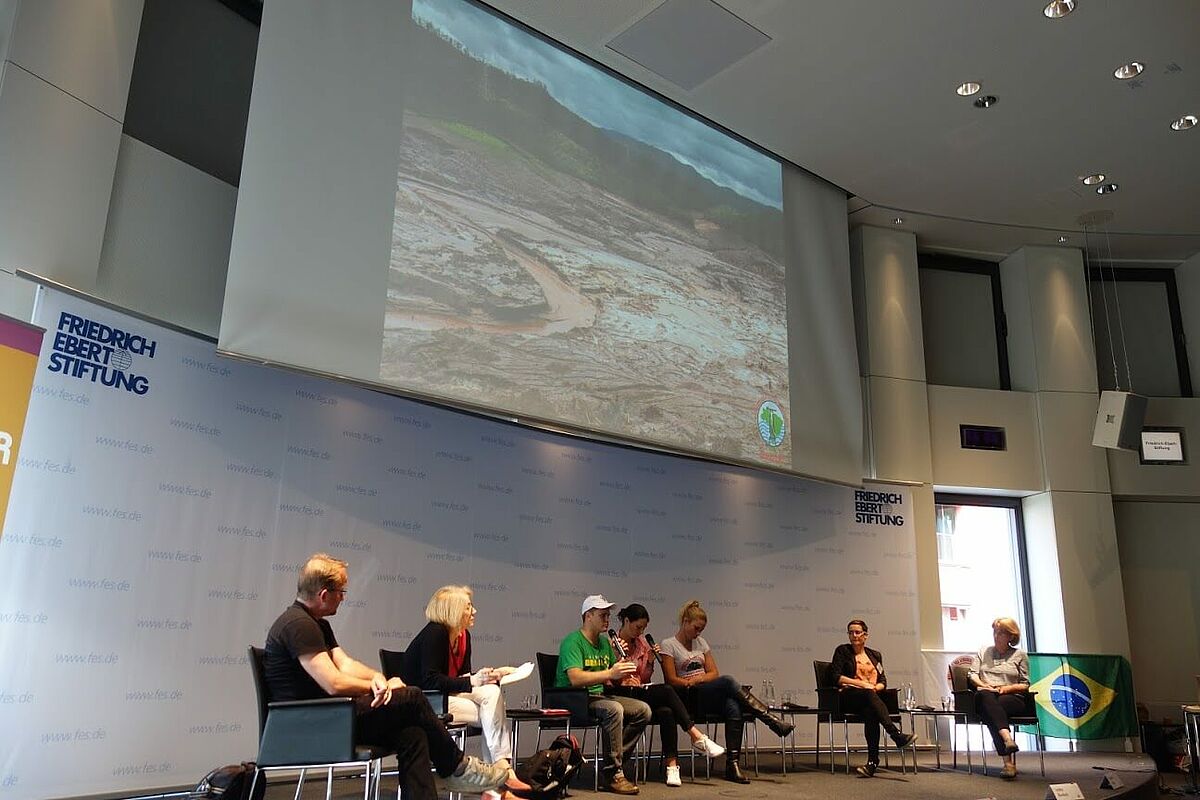Extracting value: Banks, the mining industry and access to justice
The products of mining are something that we all rely on for our daily lives, from our smartphones to our cars, to the whitening agent in our toothpaste. Yet, the global extractives industry is heavily involved in some of the worst labour, environmental and human rights violations, particularly in countries of the South. There, mining companies disregard the rights of indigenous peoples and local communities, violate communities’ rights to a healthy environment through irresponsible and highly damaging waste disposal practices, and are responsible for the violent repression of community activists.
The costs of mitigating these social and environmental risks in the mining industry would add only 1 per cent to a company’s total costs, as estimated by the Inter-American Development Bank. Yet the mining companies have undertaken few such mitigation measures. So who can effect such change? Significant potential for supporting a more sustainable and inclusive future lies in the financing and investment decisions of financial institutions (FIs) such as banks, asset managers and investors. These actors could exert their influence by excluding companies that have repeatedly violated social and environmental standards, or by only granting loans under the condition that certain improvements are implemented.
However, the financial sector continues to pour billions into the mining and extractives sector, despite the well-documented social and environmental issues they cause or contribute to, according to sixth and latest edition of Dirty Profits, a report by Facing Finance. Ten of the biggest European banks have provided over €100 billion in the form of loans, equities and bonds over the period 2010–2017 to 10 of the world’s largest extractive companies, even though these companies continue to violate international norms and standards.

One example for the impact of these business models is the collapse of two waste dams of Samarco Mineração's iron ore mine in Minas Gerais, Brazil, in November 2015. A torrent of mud and iron-ore tailings destroyed entire villages, contaminated several rivers and resulted in the immediate death of 19 people. Around 2,200 hectares of land were impacted along 650 kilometres of river. An enquiry found several indicators that the dam was not being well managed, but the company, which is jointly owned by BHP and Vale, was still receiving general corporate loans by European banks in the run-up to the disaster.
"Vale killed our river, our
culture, but will not be able to kill
our spirit."
Djukuna Shirley Krenak on the Samarco tailings dam collapse
A significant issue emerging from this and other cases covered in the latest Dirty Profits report is the lack of remedy provided by mining companies to those affected by their operations, as well as the unwillingness of FIs to support the provision of remedy. Victims of human rights abuses have the right to effective remedy under the International Covenant on Civil and Political Rights and the UN Guiding Principles on Business and Human Rights. States and extractive companies are both responsible for ensuring access to remedy, but FIs are also called upon to take responsibility for the impacts linked to the projects and companies they finance. While the majority of European banks have committed to some voluntary principles, significant gaps in banks’ approaches to human rights remain, as they do not yet fully accept their responsibilities according to the UN Guiding Principles on Business and Human Rights. As noted in a letter by the Office of the High Commissioner on Human Rights, "a bank cannot meet its responsibility to respect human rights if it fails to provide for or cooperate in remediation of harms which it has caused or contributed to". One such way of cooperating in the remediation of harm would be the initiation of an engagement process with the company in question that clearly outlines measures and timelines to address the negative human-rights consequences of the company’s operations.
Where banks are seen to be contributing to human rights violations they should also be involved in the process of remedy, as clearly demanded by the UN Guiding Principles
In the above-mentioned case of the Samarco tailings dam failure, the banks could have known about the significant shortcomings of the dam’s safety, had they conducted a proper due diligence prior to granting the loans. As there is no publicly available information and the banks are unwilling to provide Facing Finance or other actors with information which would detail their actions in this regard, it is unclear if and how the banks addressed this issue. Therefore, we assume that they omitted to take any action to require, encourage or support Samarco to prevent or mitigate these risks, which in turn means that they have contributed to the adverse human rights impacts of the tailings dam failure. Where banks are seen to be contributing to human rights violations they should also be involved in the process of remedy, as clearly demanded by the UN Guiding Principles.
One of the most substantial steps that has occurred over the past year is the release of the EU Action Plan on Sustainable Finance, which aims to systematically integrate sustainability aspects into the financial system of the European Union.
Therefore, Facing Finance continues to advocate for binding regulations on FIs that would serve to prevent such harmful investments through the application of rigorous policy and due diligence processes, as well as strong transparency and accountability commitments within FIs. One of the most substantial steps that has occurred over the past year is the release of the EU Action Plan on Sustainable Finance, which aims to systematically integrate sustainability aspects into the financial system of the European Union. While the plan has some evident shortcomings, such as its selective focus on climate change, it does provide a first step towards greater transparency and accountability of the financial sector. Furthermore, the recent publication of the draft treaty on business and human rights provides a hopeful outlook to hold transnational corporations to account for their lacking respect of human rights. This proposed piece of binding regulation is a strong indication that there is a clear change coming to the world of business and human rights, which we hope will be swiftly adopted. ###
Lesley Burdock and Sarah Guhr are part of Facing Finance, a non-profit organization based in Berlin that works to promote a more responsible financial system.
For more information on the cooperation with FES on the topic contact the Berlin-based FES Department for Global Policy and Development.
About FES Connect
Connecting people, in the spirit of social democracy, we source and share content in English from the German and international network of the Friedrich-Ebert-Stiftung.
